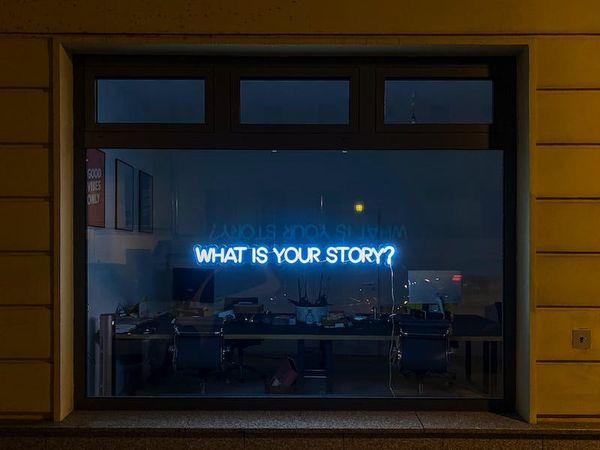Fail before you quit

Welcome back to the Effortless Action Newsletter! Every Wednesday, I share findings from a wide range of disciplines to better understand “What gets us to take action?”
Fail before you quit.
“What?! I don’t want to fail! Are you crazy?”
Maybe, but that’s beside the point.
Throughout my career, shiny object syndrome has plagued me. From choosing a major in college, to dropping out, to hopping jobs every year, and ESPECIALLY to my side projects. I can’t count the number of times I’ve hopped between freelancing, e-commerce, personal branding, and every other business idea I’ve had.
Turns out, the majority of you all feel that way too.
Anyone else get obsessed with something new every month, and not make any meaningful progress on anything? Or is it just me?
— Joe Goodman (@joe_goodman_) October 8, 2021
Ever since that tweet blew up (relative to me), I’ve been pondering how to balance these different projects. How do we know it’s time to change from one project to the other? Is the resistance we feel with a project because we’re avoiding the hard work, or because it isn’t right for us?
That’s what the “fail before you quit” framework aims to answer.
Let’s dive into the why, and then the how.
Why you should fail
The journey vs the destination
If you’re into the whole self-help thing, you’ve likely heard people talk about focusing on the journey over the destination. If you aren’t enjoying the process, then the end goal won’t be worth it.
Failure as a goal isn’t all that exciting, so it only leaves the journey. When we seek out failure, there is no gold at the end of the rainbow, so we’re forced to confront how much we actually enjoy the work.
If you enjoy failing at something, it’s a good sign you should keep going. You’ll probably enjoy succeeding at it too!
Lowering expectations
A key insight in Buddhism is that expectations are the root of suffering. When we expect something to happen, and it doesn’t, it feels bad. There’s neuroscience to back this up, specifically Dopamine Reward Prediction Error. (Let me know if you’d like to see an issue on this!)
Pursuing failure completely reframes our expectations. If you’re expectation is to fail, then failing will be okay. But if you end up succeeding, well that’s just awful now isn’t it?
The fight against perfectionism
When we want something to be good, we often procrastinate working on it. I’ve experienced this with my writing in the past. I made a shift from publishing every day to not having a deadline, and saying “I want to make good content.” (Spoiler: I ended up not publishing for two months .)
A goal of failing can help build a bias towards action.
When we pursue failure, we shift our mindset from “I want to make something good” to “screw it, let’s give it a shot.” While a subtle change, this can drastically lower the bar to start taking action. This mindset shift helped me build a tiny business that made over $4k in just one weekend. Let me know if you’d like to hear that story sometime!
Reframing the problem
When faced with lofty goals (ex. making something good) it creates an open-ended problem. There’s no clear end result, so we have a difficult time figuring out the path to get there. If you force yourself to define how you can fail fast, you create a destination that you can see. Now, it’s a whole lot easier to figure out the path to get there.
With reframing the problem, we also pivot our focus from something that takes a little bit of luck to happen (success) to something completely in our control (failure).

How to fail
In the startup world, there’s this concept of MVP, or minimum viable product. An MVP helps us focus on what matters most – feedback. It forces us to define the quickest path to get that path, to try to validate our idea.
We can apply these same principles to our projects.
Reduce risk
When pursuing failure, it’s important to reduce risk (what’s at stake) as much as possible. The whole point is to make efficient learnings, so try to minimize the investment in the first iteration as much as possible. Leverage your friends, family, or social media to get as many free eyes on your project as possible.
Fail fast
Getting to failure as fast as possible gives us a shorter feedback loop, and decreases the amount of time investment we put into something. For personal projects, failing fast is a great way to figure out if you enjoy that flavor of shit sandwich .
Feedback focused
Failing is pointless unless you learn something from it. Gather as much information from your target demographic as possible. If that’s not possible, then turn to your friends and family. If all else fails (no pun intended), you should at least take time to reflect. Analyze what happened, how you enjoyed it, and if it’s something you want to continue pursuing.
TLDR;
Before quitting a project, try failing first. By pursuing failure, we leave expectations and perfectionism to rot, and we gain valuable insights from both the world and ourselves. Reduce the risk of failure, fail fast, and get feedback. Once you’ve failed, then you can decide whether or not it’s something you’d like to quit.
Thanks for reading!
Hey you. Thanks for reading to the bottom!
If you enjoyed this, there’s much more to come. I’d love to hear your feedback, you can simply reply to this email or click on one of those little “Did you enjoy this issue?” responses right below the next paragraph.
If you’re reading this through The Sample or on the web , and you’d like to get more insights like this in your inbox every week, you can sign up at the top of the page here ! Also, go follow me on Twitter if that’s what you’re into. 😁
If you enjoyed this edition in particular, I’d be honored if you share this on Twitter , or forward it to a friend!
I hope you have a wonderful day!



